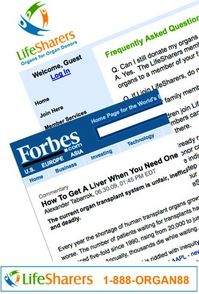Pay It Forward: The future of human organ donation?

Editor's note: This post is part of a series by Dr. Baker on Our Values about core American values. This week Dr. Baker is discussing the idea of paying it forward.
Former Vice President Dick Cheney had a heart transplant earlier this year, after being on a waitlist for almost two years. He was one of the lucky ones because many people die waiting for a heart, kidney, or other organs. Experts agree there’s a severe shortage of human organs and it will likely get worse.
This week, we’ve considered how the principle of “pay it forward” worked in a Great Lakes rescue, a young Detroiter’s effort to help the jobless, Good Samaritan experiments, and even in the form of an app.
Could the pay-it-forward principle also remedy the human-organ shortage?
There are various attempts to solve the shortage. When you get or renew your driver’s license, you can check the box to become an organ donor. Economists offer a market solution: Pay donors. Countries like Singapore pay a considerable sum to someone who is willing to donate an organ. Israel has a “no give, no take” rule: Sign up to donate your organs or you'll have low priority if you need one in the future.
Kidney chains implement the principle of paying it forward. Here, a grateful relative of a kidney recipient donates a kidney to a third party. We’ve discussed one of these chains before, where you can see a video about it. The chains can grow to be quite long.
Life Sharers is a private nonprofit network in the U.S. that implements a variation of the pay-it-forward principle. Here’s how it works, in their words: “LifeSharers members promise to donate upon their death, and they give fellow members first access to their organs. As a LifeSharers member, you will have access to organs that otherwise may not be available to you. As the LifeSharers network grows, more and more organs may become available to you — if you are a member.” A member can still donate organs first to family members.
What do you think of these solutions to the human-organ shortage?
Should we just make it an open market and pay donors?
Or, do you think "Pay It Forward" can solve the problem?
Wayne Baker is a sociologist on the faculty of the University of Michigan Ross School of Business. Baker blogs daily at Our Values and can be reached at ourvaluesproject@gmail.com or on Facebook.


Comments
Dave Undis
Sat, Aug 11, 2012 : 4:18 p.m.
Giving organs first to registered organ donors creates an incentive for non-donors to register as donors. If you'd like to donate your organs to other organ donors, you can join LifeSharers at www.lifesharers.org. Membership is free, there is no age limit, and no one is excluded due to any pre-existing medical condition. Everyone can offer to donate their organs when they die, no matter what their medical condition is. Those who aren't willing to donate should go to the back of the transplant waiting list as long as there is a shortage of organs.
xmo
Fri, Aug 10, 2012 : 5:34 p.m.
A few other solutions which might not seem viable now but has society becomes more Progressive some of these ideas will look more attractive: 1) Instead of abortions, why not just let the children live and HARVEST their Organs as needed? They are unwanted, their mother wants them dead so they are not really Human so nobody will care. 2) Allow people to sell their organs like blood donation while they are alive for money. 3) "Mentally Dead" or "Life support" people could also be use as a source of organs for Harvest.